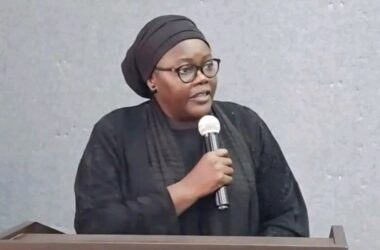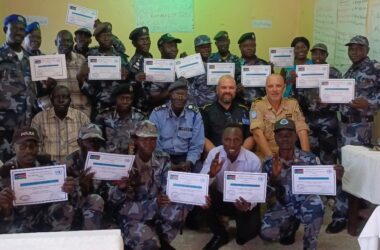By Charles K Mark
TROIKA countries, the United States of America, Norway, and the United Kingdom have urged South Sudan leaders and citizens to avoid employing violent strategies as a means of competition.
US Ambassador to South Sudan, Michael J. Adler on behalf of the TROIKA made the statement during a meeting with the Minister in the office of the President, Bangasi Joseph Bakosoro and Minister of Foreign Affairs and International Cooperation James Pitia Morgan.
Mr. Adler highlighted their engagement with the people of South Sudan was and remains based on values including peace, human rights, democracy, and people’s right to a government that is responsive to their needs, not to that of a small elite.
One of the ways to demonstrate these values, Mr. Adler said is for the Transitional government to hold free, fair, and peaceful elections by December of this year.
“We urge all of South Sudan’s leaders to take these necessary steps, and we urge them to reject violence as a tool for competition,” he said in the statement.
He said another way to demonstrate alignment with the foundational values in the bilateral relationship is transparency in the use of public revenue.
“This includes funding for humanitarian support for returnees from Sudan, for the health sector, education and other basic services, and for consistent salary payments to security personnel and civil servants, as well as funding for necessary electoral institutions,” the ambassador stated.
This call comes as the National Election Commission declared that elections would take place in December 2024 at the end of the transitional Period.
“The peace agreement clearly states that elections will be conducted two months before the transitional period ends….Therefore, elections will be held by December this year,” said the NEC chairperson Abednego Akok after being sworn in on Monday.
Akok however pointed out that conducting an election requires various processes that can’t occur without adequate funding, urging the government to avail resources.
He explained that the election process has three stages: civic education, voter registration, and voting.




